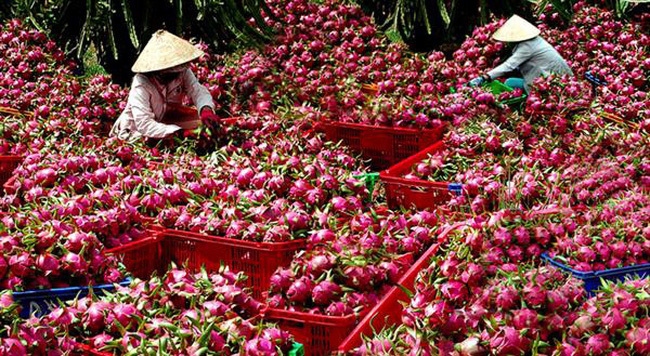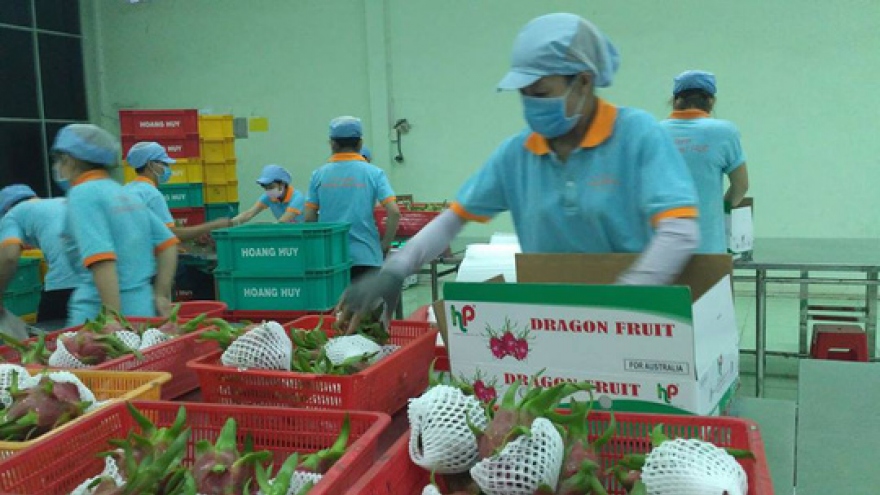Agricultural firms seek to tap Chinese market
VOV.VN - A lack of knowledge regarding market demand and policy changes in recent years has prevented Vietnamese agricultural firms penetrating the Chinese market, though their products meet the stringent standards set by the EU market, according to insiders.
.
.

The Agro Processing and Market Development Authority (Agrotrade) state that total import-export turnover of agricultural products between Vietnam and China suffered an annual decline of 8.6% to US$9.8 billion during the opening nine months of the year due to the impact of the COVID-19 pandemic.
Although major Vietnamese fruits such as grapefruit, dragon fruit, passion fruit, coconuts, longans, and lychee, meet the export requirements set by importers from both the EU and United States, they find it difficult to make inroads into the Chinese market.
At present, only nine types of Vietnamese fruits have successfully penetrated the Chinese market via official channels, including dragon fruit, watermelons, litchis, longans, bananas, mangoes, jackfruit, rambutans, and mangosteens.
Nguyen Quang Hieu, deputy director of the International Cooperation Department under the Department of Plant Protection, said China’s market regulations have undergone recent changes in terms of plant quarantine and food safety requirements imposed on imported items.
This comes as the General Administration of Customs of China has moved to gradually tighten inspection and set forth stricter regulations regarding traceability of origin, growing areas, and packaging labels for imported fruit and vegetables to fall in line with international standards.
According to China Customs, there remains hurdles regarding the registration of growing areas, the management of packaging facilities, and origin traceability, all of which has served to affect the fruit and vegetable export turnover between the two nations.
Ngo Tuong Vy, deputy director of Chanh Thu Fruit Import and Export Co., Ltd, emphasises that the northern neighbour has recently imposed tougher standards on imported items whilst intensifying phytosanitary measures at border gates, thus slowing down necessary customs clearance procedures.
In the past local firms viewed China as an easy market, although that is no longer the case due to their organic standards now being among the highest in the world, Vy notes.
Sharing this viewpoint, Dang Phuc Nguyen, general secretary of the Vietnam Fruit and Vegetables Association, says that fruit and vegetable exports to the Chinese market have faced numerous challenges due to the COVID-19 pandemic, coupled with their recent implementation of new export policies.
Nguyen underlines the need to update local businesses on China’s new regulations in order to help them gain a greater insight into the huge market, therefore facilitating the export of agricultural products.
He suggests the Ministry of Agriculture and Rural Development seek steady Chinese outlets for key Vietnamese fruits such as durians, grapefruit, passion fruit, avocadoes, and coconuts, paving the way for other Vietnamese farm products to penetrate the market.


